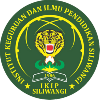DEVELOPING STUDENT’S SCIENTIFIC LITERACY BY INCORPORATING LOCAL TERMS AND SOCIOCULTURAL PHENOMENA INTO SCIENCE TEACHING-LEARNING PROCESS
Abstract
The lack of integration between science and culture, students' social-life and science experiences, as well as between students' sociocultural and science world, creates a "gap" between both aspects. When students fail to transition their school science situation and knowledge to real-life cultural experience or vice versa, they refuse to learn science deeper because science might threaten their sociocultural beliefs. As a further consequence, this condition will result in low scientific literacy. It is essential to increase students' scientific and cultural literacy because it helps young generation to marry science and culture effectively. Based on literature review done by the author, it shows that integrating local language and sociocultural phenomena into science classrooms can enhance students' motivation and interest in science and increase learning achievement. Connecting more students' social-cultural aspects, particularly language and life experience, can help to increase scientific literacy.
References
Adinugraha, F. (2022). An approach to local wisdom and cultural in Biology Learning. EAI. DOI 10.4108/eai.17-11-2021.2318660
Aikenhead, G. S., & Jegede, O. J. (1999). Cross-cultural science education: A cognitive explanation of a cultural phenomenon. Journal of Research in Science Teaching, 36(3), 269-287.
Asiyah, Sapri, J., Novitasari, N., Saregar, A. Topano, A., Walid, A., & Kusumah, R., G., T. (2020). Construction ethnoscience-based learning environment material in scientific knowledge. Journal of Physics, 1796 (2021) 012034. IOP Publishing. doi:10.1088/1742- 6596/1796/1/012034
Buxton, C., Harman, R., Cardozo-Gaibisso, L., Jiang, L. Bui, K., & Allexsaht-Snider, M. (2019). Understanding science and language connections: New approaches to assessment with bilingual learners. Res Sci Educ, 49, 977–988. Doi.org/10.1007/s11165-019-9846-8
Kanesa, D. S. (2014). Where are you from? Writing toward science literacy by connecting culture, person, and place. Journal of Geoscience Education, 62(1), 11-18, https://doi.org/10.5408/12-413.1
Kasi, Y. F., Samsudin, A., Widodo, A., & Riandi, R. (2022). Integrating local science and school science: The benefits for the preservation of local wisdom and promoting students’ learning. ResearchGate. DOI: 10.21203/rs.3.rs-1839609/v1
Ke, L., Sadler, T.D., Zangori, L., & Friedrichsen, P. J. (2021). Developing and using multiple models to promote scientific literacy in the context of socio-scientific issues. Sci & Educ, 30, 589–607. https://doi.org/10.1007/s11191-021-00206-1
Kelly, G., Carlsen, W., & Cunningham, C. (1993). Science education in sociocultural context: Perspective from the sociology of science. Science Education, 77(2), 207-220.
Kemdikbud. (2022, June 27). Lima Bahasa Daerah dari 11 Kabupaten Kota di NTT Jadi Fokus Revitalisasi.
Ladson-Billings, G. 1995a. But that’s just good teaching! The case for culturally relevant pedagogy. Theory Into Practice, 34 (3): 159–165.
Ladson-Billings, G. 1995b. Toward a theory of culturally relevant pedagogy. American Educational Research Journal, 32 (3): 465–491.
Lähdesmäki, T., Baranova, J., Ylönen, S. C., Koistinen, A., Mäkinen, K., Juskiene, V., & Zaleskiene, I. (2022). Introduction: Cultural literacy and creativity. In Lähdesmäki, Learning cultural literacy through creative practices in schools (pp. 1-15). Palgrave Macmillan, Cham. https://doi-org.ezproxy.cul.columbia.edu/10.1007/978-3-030-89236- 4_1
Lee, O., & Fradd, S. H. (1998). Science for all, including students from Non-English-Language backgrounds. Educational Researcher, 27(4), 12–21. https://doi.org/10.2307/1176619
Lee, O., & Buxton, C. (2011). Engaging culturally and linguistically diverse students in learning science. Theory Into Practice, 50(4), 277-284. DOI: 10.1080/00405841.201 1.607379
Lemke, J. L. (2001). Articulating communities: Sociocultural perspectives on science education. Journal of Research in Science Teaching, 38(3), 296-316.
Mensah, F. M. (nd). Teaching culturally and ethnically diverse learners in the science classroom. Mc Graw Hill Education, 1-6.
Moll, L. C, Amanti, C., Neff, D., & Gonzalez, M. (1992). Funds of knowledge for teaching: Using a qualitative approach to connect homes and classrooms. Theory Into Practice, 31(2), 132- 141. DOI: 10.1080/00405849209543534
Ogunkola, B. J. (2013). Scientific literacy: Conceptual overview, importance and strategies for improvement. Journal of Educational and Social Research, 3(1), 265-274. DOI:10.5901/jesr.2013.v3n1p265
Putera, P.B., Ningrum, S., Suryanto, S. Widianingsih, I., & Rianto, Y. (2022). The strategies for scientific literacy in Indonesia. Asian Journal of Innovation and Policy, 11(2), 258-276. DOI: http//dx.doi.org/10.7545/ajip.2022.11.2.258
Reis, G. (2015). A socio-culturally sensitive science curriculum: What does it have to do with our bodies. In Milne, C., Tobin K, & DeGennaro, D (Eds.), Sociocultural studies and implications for science education (pp. 231-255). Cultural Studies of Science Education, 12. DOI 10.1007/978-94-007-4240-6_1
Soko, I. P., Setiawan, A., Widodo, A., & Redjeki, S. (2017, January). The Identification of Local Science Learning Resources of Nusa Tenggara Timur for Developing Physics Instructions in High School. In International Conference on Mathematics and Science Education (pp. 225-230). Atlantis Press.
Tobin, K. (2015). The sociocultural turn in science education and its transformative potential. Sociocultural studies and implications for science education: The experiential and the virtual, 3-31.
Zidny, R., Sjöström, J., & Eilks, I. (2021). Correction to: A Multi-Perspective Reflection on How Indigenous Knowledge and Related Ideas Can Improve Science Education for Sustainability. Science & Education, 1-2.
Zubaidah, S., & Arsih, F. (2021, March). Indonesian culture as a means to study science. In AIP Conference Proceedings (Vol. 2330, No. 1). AIP Publishing.
Downloads
Published
Issue
Section
License

This work is licensed under a Creative Commons Attribution-ShareAlike 4.0 International License.











